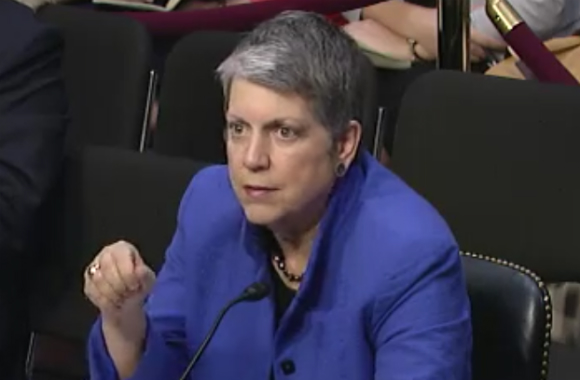There are many new commentators at CTH, and even more new people taking notice of politics for perhaps the first time in their lives. There is also some confusion noticed between two distinct groups who appear to be talking above and around each other. Two groups trying to communicate from two entirely divergent sets of understanding.
Perhaps it is valuable to reset the larger frames of reference and provide clarity.

Many, heck, most people think when they vote for a federal politician -a representative- they are voting for a person who will go to Washington DC and write or enact legislation. This is the old-fashioned “schoolhouse rock” perspective based on decades past.
There is not a single congress person who writes legislation or laws.
In 2017 not a single member of the House of Representatives or Senator writes a law, or puts pen to paper to write out a legislative construct. This simply doesn’t happen.
Over the past several decades a system of constructing legislation has taken over Washington DC that more resembles a business operation than a legislative body. Here’s how it works.
Outside groups often called “special interest groups” are entities that represent their interests in legislative constructs. These groups are often corporations, banks, financial groups or businesses; or smaller groups of people with a similar business connection who come together and form a larger group under an umbrella of interest specific to their like-minded affiliation.
Sometimes the groups are social interest groups; activists like climate groups, environmental interests etc. The social interest groups are usually non-profit constructs who depend on the expenditures of government to sustain their cause or need.
The for-profit groups (mostly business) have a purpose in Washington DC to shape policy, legislation and laws favorable to their interests. They have fully staffed offices just like any business would – only their business is getting legislation for their unique interests.
These groups are filled with highly-paid lawyers who represent the interests of the entity and actually write laws and legislation briefs. In the modern era this is actually the origination of the laws that we eventually see passed by congress. Within the walls of these buildings within Washington DC is where the ‘sausage’ is actually made.
Again, no elected official is usually part of this law origination process.

Once the corporation or representative organizational entity has written the law they want to see passed they hand it off to the lobbyists. The lobbyists are people who have deep contacts within the political bodies of the legislative branch, usually former House/Senate staff or former House/Senate politicians themselves.
The lobbyist takes the written brief, the legislative construct, and it’s their job to go to congress and sell it.
“Selling it” means finding politicians who will accept the brief, sponsor their bill and eventually get it to a vote and passage. The lobbyist does this by visiting the politician in their office, or, most currently familiar, by inviting the politician to an event they are hosting. The event is called a junket when it involves travel.
Often the lobbying “event” might be a weekend trip to a ski resort, or a “conference” that takes place at a resort. The actual sales pitch for the bill is usually not too long and the majority of the time is just like a mini vacation etc.
The size of the indulgences within the event, the amount of money the lobbyist is spending, is customarily related to the scale of the bill the sponsoring business entity needs to get support for. If the sponsoring business or interest group can gain a lot of financial benefit for the legislation they spend a lot on the indulgences.

Recap: Corporations (special interest group) writes the law. Lobbyists take the law and go find politician(s) to support it. Politicians get support from their peers using tenure and status etc. Eventually, if things go according to norm, the legislation gets a vote.
Within every step of the process there are expense account lunches, dinners, trips, venue tickets and a host of other customary way-points to generate/leverage a successful outcome.
But the important part to remember is that the origination of the entire system is EXTERNAL to congress.
Congress does not write laws or legislation, special interest groups do. Lobbyists are paid, some very well paid, to get politicians to go along with the need of the legislative group.
When you are voting for a Congressional Rep or a U.S. Senator you are not voting for a person who will write laws. Your rep only votes on legislation to approve or disapprove of constructs that are written by outside groups and sold to them through lobbyists who work for those outside groups.
While all of this is happening the same outside groups who write the laws are providing money for the campaigns of the politicians they need to pass them. This construct sets up the quid-pro-quo of influence, although much of it is fraught with plausible deniability.
This is the way legislation is created.
If your frame of reference is not established in this basic understanding you can often fall into the trap of viewing a politician, or political vote, through a false prism. The modern origin of all legislative constructs is not within congress.
“we’ll have to pass the bill to, well, find out what is in the bill” etc. ~ Nancy Pelosi 2009
“We rely upon the stupidity of the American voter” ~ Johnathan Gruber 2011, 2012
Now, think about this reality against the backdrop of the 2016 Presidential Election. The entire system within DC was not structurally set-up to receive a Donald Trump presidency.
If Hillary Clinton had won the election, her Oval Office desk would be filled with legislation passed by congress which she would be signing. Heck, she’d have writer’s cramp from all of the special interest legislation that would be flowing to her desk.
Why? Simply because the authors of the legislation, the special interest and lobbying groups, were spending millions to fund her campaign. President Hillary Clinton would be signing K-Street constructed special interest legislation to repay all of those donors/investors. Congress would be fast-tracking the passage because the same interest groups also fund the members of congress.
President Donald Trump winning the election threw a monkey wrench into the entire DC system…. The modern legislative machine is frozen in place.
The “America First” policies represented by candidate Donald Trump are not within the legislative constructs coming from the authors of the legislation. Congress has no bills to advance because all of the myriad of bills and briefs written are not in line with President Trump policy.
That’s why congress has not passed any legislation for President Trump to sign.
There’s no entity within DC writing legislation that is in-line with President Trump’s economic and foreign policy agenda. Exactly the opposite is true. All of the DC legislative briefs and constructs are antithetical to Trump policy.
There are hundreds of file boxes filled with thousands of legislative constructs that became worthless when Donald Trump won the election.
Those legislative constructs (briefs) representing tens of millions of dollars worth of time and influence and are now just sitting there piled up in boxes under desks and in closets amid K-Street and the congressional offices.
Any current legislation must be in-line with an entire new political perspective, and there’s no-one, no special interest or lobbying group, currently occupying DC office space with any interest in synergy with Trump policy.
Think about the larger ramifications within that truism.
That is also why there’s so much opposition.
No legislation by outside interests means no work for lobbyists who sell it. No work means no money. No money means no expense accounts. No expenses means politicians paying for their own indulgences etc.

However, no K-Street expenditures -because of the futility of it- also means more money available for opposition and activist activity.
Lastly, when you understand this reality you begin to see the difference between legislation with a traditional purpose and faux-legislation with a political agenda.
Remember, politicians don’t write laws – outside groups do.
If you asked a DC Senator or House Member to actually write a law they’d look back at you like a cow just licked them on the forehead. The politician would have no clue what you are asking them to do, and would immediately look to their staff as their closest reference point (the go-betweens) for outside lobbyist assistance.
This helps to understand when Senator Rand Paul, Mike Lee or Ted Cruz are “pitching” a “bill they’ve written”, it’s a gimmick – a ruse – a pure fundraising ploy. Nothing more. That’s why the bills they talk about (ie. El Chappo, Clean Repeal etc.) never actually materialize…. they are raising money, not legislation.
And that’s why Trump’s legislative inbox is empty.





















